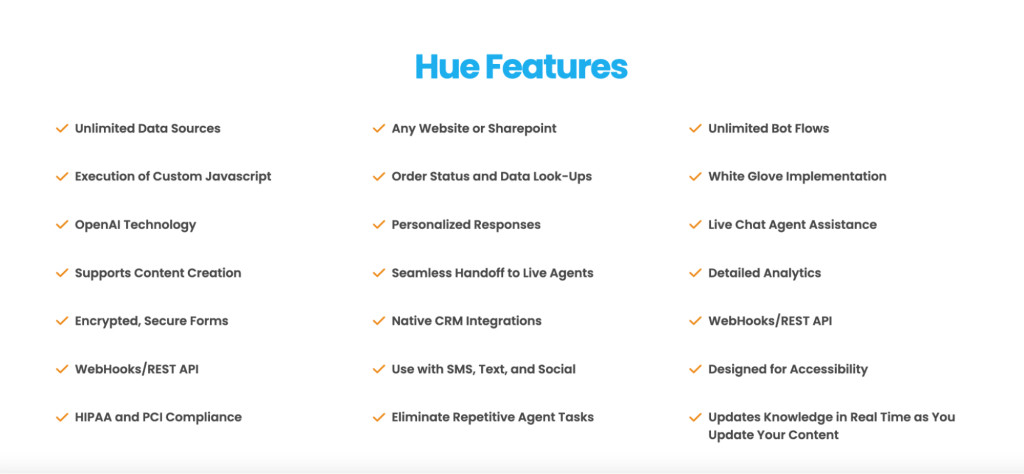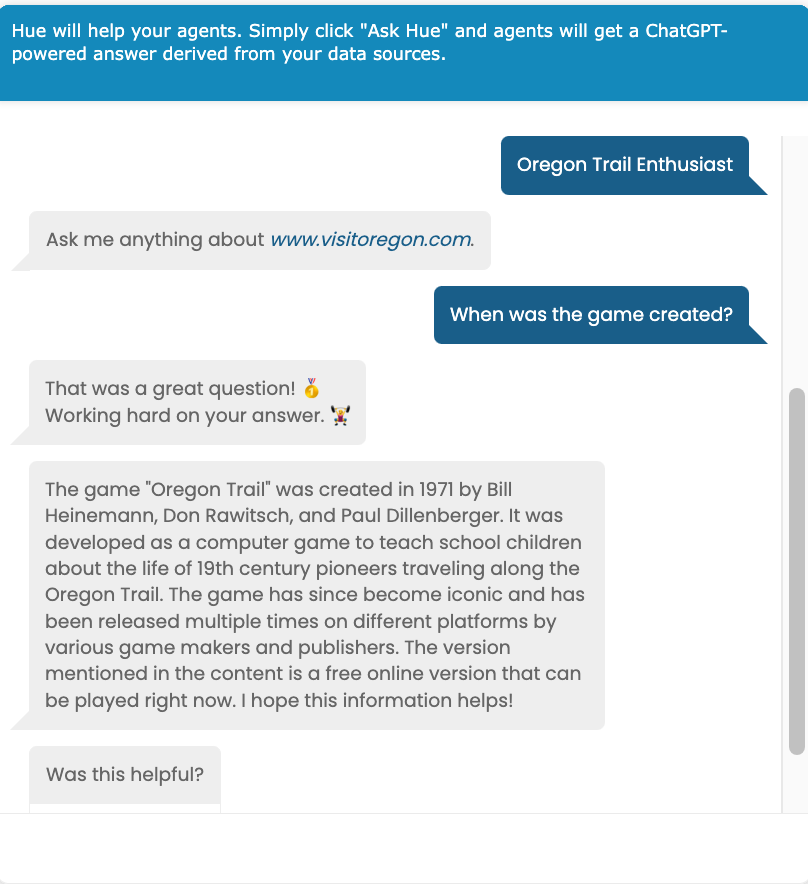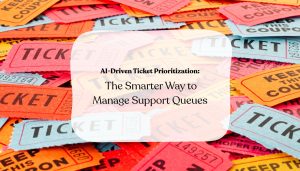Managing knowledge bases within organizations has become increasingly critical. The ability to efficiently capture, organize, and access knowledge bases can significantly impact business performance and productivity. Thankfully, advancements in technology, particularly artificial intelligence (AI), have opened up new possibilities for optimizing knowledge management processes. By harnessing the power of AI, organizations can bridge the gaps that often hinder effective knowledge management.
The Role of AI in Modernizing Knowledge Management
With AI’s ability to analyze vast amounts of data quickly, AI technologies enable organizations to extract valuable insights from their knowledge bases.
One of the key benefits of AI in knowledge management is its ability to identify patterns and trends within data. By leveraging machine learning algorithms, AI can analyze and categorize knowledge in a more efficient and intuitive manner. This not only saves time but also ensures that information is organized in a way that is easily accessible and understandable.
Moreover, AI-powered chatbots and virtual assistants have revolutionized the way organizations handle knowledge inquiries. These intelligent systems can provide instant answers to frequently asked questions, freeing up valuable time for employees to focus on more complex tasks. With AI, organizations can provide employees and customers with real-time access to relevant knowledge, enhancing productivity and customer satisfaction.
AI also plays a crucial role in knowledge discovery. Traditional knowledge management systems often rely on manual input and categorization, which can be time-consuming and prone to human error. AI, on the other hand, can automatically analyze and extract insights from unstructured data sources such as documents, emails, and social media posts. This enables organizations to uncover hidden knowledge and gain a deeper understanding of their data.
Furthermore, AI can assist in knowledge creation and collaboration. By analyzing existing knowledge and identifying gaps, AI can suggest new ideas and solutions. Another area where AI is transforming knowledge management is in the field of content recommendation. AI algorithms can analyze user behavior, preferences, and past interactions to deliver personalized recommendations. This ensures that employees and customers are presented with the most relevant and valuable knowledge, improving their overall experience and engagement.
Automating Knowledge Management Processes with AI
Traditionally, knowledge management involved manual processes that were time-consuming and prone to errors. AI automation offers a solution to these challenges by streamlining knowledge management processes. By automating tasks such as data entry, categorization, and content tagging, organizations can ensure that their knowledge repositories remain up-to-date and organized.
One of the key benefits of optimizing knowledge management with AI is its ability to handle large volumes of data efficiently. With the exponential growth of information, organizations are often overwhelmed by the sheer amount of data they need to manage. AI algorithms can quickly process and analyze vast quantities of information, allowing organizations to extract valuable insights and make informed decisions.
Furthermore, AI can also assist in the creation of knowledge by automatically generating summaries or extracting key information from documents and articles. This automation not only saves time but also improves the quality and accuracy of knowledge being captured. By eliminating manual handling, organizations can reduce the risk of human error and enhance the overall effectiveness of their knowledge management strategies.
In addition to improving efficiency and accuracy, AI automation can also enable organizations to uncover hidden patterns and trends within their knowledge repositories. By applying advanced data analytics techniques, AI algorithms can identify correlations and insights that may not be immediately apparent to human users. These insights can then be used to drive innovation, improve decision-making, and gain a competitive edge in the market.
Moreover, AI automation can enhance collaboration and knowledge sharing within organizations. By providing intelligent search capabilities and facilitating seamless information exchange, AI-powered knowledge management systems enable employees to easily access and contribute to the collective knowledge of the organization. This promotes a culture of continuous learning and empowers employees to make more informed decisions.
LiveHelpNow’s Hue Bridges the Gaps with Innovative AI-powered Knowledge Base
Building a robust knowledge base is crucial for any organization as it serves as a self-service resource for customers to find solutions to their queries. When creating knowledge base articles, it is essential to focus on customer queries to ensure relevance and usefulness. By analyzing customer queries, businesses can identify recurring issues or common questions and build informative articles around them. This allows customers to access the information they need quickly and effortlessly. It is vital to use plain language, avoid jargon, and provide step-by-step instructions or troubleshooting tips in these articles. Regularly updating and expanding the knowledge base with new articles based on emerging customer queries also ensures that it stays current and comprehensive. By prioritizing customer queries, organizations can enhance their knowledge base’s effectiveness and provide exceptional customer support.
Hue AI leverages advanced analysis of various data sources such as phone call transcripts, chat transcripts, chat bot interactions, and knowledge base queries to provide intelligent recommendations and generate knowledge base articles. Instead of relying on assumptions, Hue AI relies on real and relevant information to create accurate and effective knowledge base content.
By analyzing the previous interactions between customers and customer support representatives, Hue AI gains valuable insight into the most frequently asked questions and common issues faced by users. This analysis helps identify knowledge gaps in the existing knowledge base and suggests areas where new articles can be created or existing articles can be improved.
Furthermore, by studying chat bot interactions, Hue AI understands the typical user queries and the responses given by the bot. This knowledge is then utilized to generate highly relevant and helpful knowledge base articles that address the questions and concerns of users.
The analysis of phone call transcripts enables Hue AI to extract key insights from verbal customer interactions. By identifying frequently discussed topics, recurring problems, and successful resolution techniques, Hue AI gains knowledge that is invaluable for creating accurate and practical knowledge base articles.
Moreover, by examining knowledge base queries, Hue AI identifies gaps in the existing knowledge base content. It thoroughly analyzes user search patterns and understands the intent behind user queries. Based on this understanding, Hue AI recommends specific areas where new knowledge base articles can be created or existing articles can be updated to better address user needs.
Overall, Hue AI’s approach to generating knowledge base articles is grounded in real data and user interactions, allowing it to provide content that is tailored to the actual needs and concerns of customers. By avoiding assumptions and basing its recommendations on concrete information, Hue AI ensures that the knowledge base articles it produces are accurate, relevant, and effective in meeting customer requirements.

One exciting AI-powered solution that can help organizations bridge the gaps in knowledge management is LiveHelpNow’s Hue.
Hue, powered by ChatGPT, sources answers to customer questions by using the company’s knowledge base, website data, internal documents, and more. This ensures lightning-fast and accurate responses without aid from human agents. This tool power-ups customer service efforts with fast and efficient replies to a wide range of custom inquiries.
With Hue, organizations can create and better manage a centralized knowledge repository that is easily searchable and accessible to all employees. The AI-powered search capabilities enable users to find relevant information quickly, eliminating the need to spend valuable time sifting through vast amounts of data.

Hue can not only suggest responses to common questions, but also report back which questions didn’t get an answer. This can help discover and bridge the gaps in the knowledge base.
Additionally, Hue’s chatbot feature allows organizations to provide instant support to employees and customers by answering common questions. The chatbot leverages AI algorithms to understand user inquiries and deliver accurate responses promptly. This not only enhances productivity but also improves the overall user experience.
Another standout feature of Hue is its robust analytics capabilities. The platform provides valuable insights into knowledge usage, employee engagement, and areas that require improvement. By analyzing these insights, organizations can proactively address knowledge gaps and continuously optimize their knowledge management processes.
Optimizing knowledge management with AI can bring great benefits to your business. Free up your agents to tackle more complex issues. With LiveHelpNow, streamline your customer service process, enhance productivity, and simplify your agents’ workflow. Take the first step towards a smarter, more efficient knowledge management system with a Free 30 Day Trial of LiveHelpNow and witness the difference it makes.




